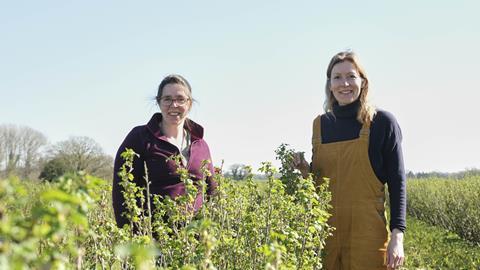Ribena owner Suntory launches major new research project to reduce GHG emissions
Ribena owner Suntory Beverage & Food Great Britain and Ireland (SBF GB&I) has unveiled a research project to reduce greenhouse gas emissions from the growing of blackcurrants through regenerative farming practices.
The project has been launched in collaboration with the University of East Anglia, SBF GB&I, Suntory Holdings and Soil Ecology Laboratory, and will take place across much of the 60 hectares of blackcurrant production at Gorgate Farm in Norfolk, which has been growing blackcurrants for Ribena since the 1950s.
As part of Suntory Group’s overall ambition to support crop resilience and reduce carbon emissions from its supply chain, the project aims to reduce scope 3 greenhouse gas emissions from blackcurrant production and improve soil health so that it can support plant resilience and increase the amount of carbon it can sequester.
The project will focus on minimising external inputs while improving soil health, plant nutrition and environmental protection through:
- Sap sampling to better understand and optimise blackcurrant plant nutrition – the theory being macro and micro-nutrient imbalances affect plant resilience and attack by pests and diseases
- Utilisation of novel and organic inputs (both fertiliser and crop protection) to replace conventional inputs
- Creation of diverse alleyway swards to feed the soil and increase carbon
- Improvements to soil health and carbon sequestration through the utilisation of compost extracts to restore soil microbiology.
Rosie Begg, second generation blackcurrant grower and research lead at Gorgate Farm, said: “Ribena is an iconic brand with an 85-year history of supporting the UK blackcurrant industry, driving innovation in blackcurrant farming as well as the conservation of farmland.
”Challenging climatic and economic conditions over the past few growing seasons have inspired me to investigate, and start to adopt, regenerative farming practices that will allow us to grow sustainably as well as reduce greenhouse gas emissions. It’s thrilling to be able to bring in national experts and researchers to support this ambition and to be so supported by our customer. Collaborating with Suntory’s global team will enable us to share our learnings and learn from regenerative projects all over the world.
“Soil truly is the most important and essential ecosystem; it’s linked to every function on the planet. The aim is by focusing on soil biology restoration, we can allow natural processes to support blackcurrant production without so much intervention, benefiting both the environment and blackcurrants we grow substantially.”
The pilot project launches in April 2023, backed by investment from Suntory Holdings, for at least three years. However, the company said it hopes that the principles and learnings developed will lead to a step change in sustainable production, not just in blackcurrant, but for many other crops well into the future.




